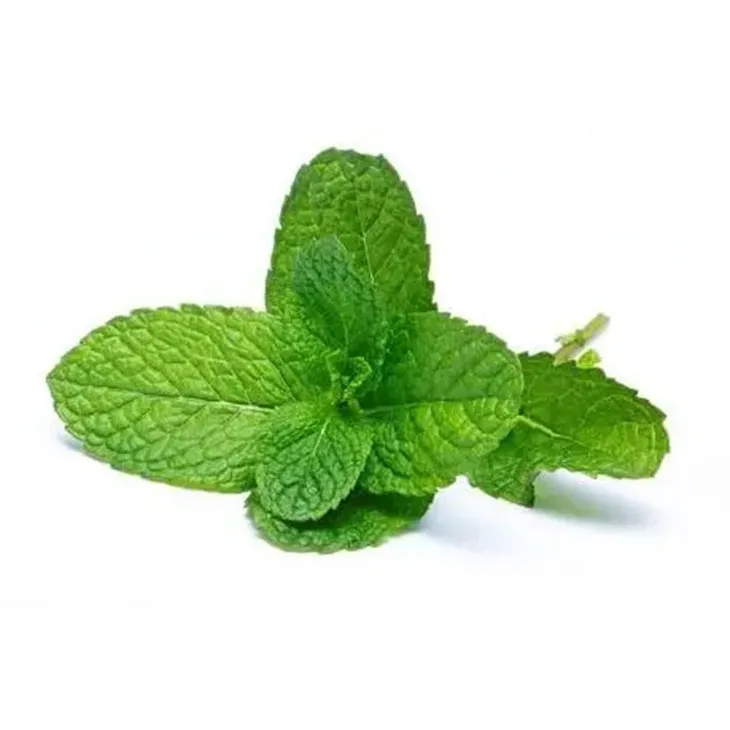- 0086-571-85302990
- sales@greenskybio.com
The Mint Connection: How Peppermint Oil Extraction Impacts India's Economy and Environment
2024-08-21

Introduction
In this comprehensive exploration, we delve into the intricate mint connection and its profound impact on India's economic and environmental realms. Peppermint Oil extraction stands as a significant economic driver, while also presenting environmental challenges that demand our attention. By examining these aspects in detail, we aim to shed light on this important issue and raise awareness.

The Economic Impact of Peppermint Oil Extraction
Agricultural Sector Boost
Peppermint cultivation has emerged as a vital part of India's agricultural landscape. The cultivation of peppermint plants provides employment opportunities for a large number of farmers and agricultural workers. These farmers are able to earn a stable income by growing peppermint, which has led to the growth of rural economies. Additionally, the demand for Peppermint Oil has increased in both domestic and international markets, further driving the growth of the agricultural sector.
- Peppermint cultivation requires specific soil and climatic conditions, which have led to the development of specialized farming regions in India. These regions have witnessed an increase in agricultural productivity and have become hubs for peppermint production.
- The processing of peppermint leaves into oil involves various stages, such as harvesting, drying, and extraction. This has led to the growth of agro-processing industries in India, providing additional employment opportunities and contributing to the overall economic growth of the country.
Industrial Development
Peppermint oil extraction has also played a crucial role in driving industrial development in India. The extraction process requires the use of advanced technologies and machinery, which has led to the growth of the manufacturing sector. Companies involved in peppermint oil extraction have invested in research and development to improve the extraction process and increase production efficiency. This has led to the emergence of a vibrant industrial ecosystem around peppermint oil extraction.
- The manufacturing of extraction equipment and machinery has seen significant growth, with several companies specializing in this领域. This has not only created employment opportunities but has also contributed to the import substitution of such equipment.
- Peppermint oil is used in a wide range of industries, including pharmaceuticals, cosmetics, and food processing. The demand for peppermint oil has led to the establishment of downstream industries that use peppermint oil as a raw material. This has created a multiplier effect on the economy, as these industries generate additional employment and contribute to economic growth.

The Environmental Challenges of Peppermint Oil Extraction
Water Usage
Peppermint oil extraction requires a significant amount of water for various processes, such as washing and extraction. The excessive use of water in peppermint oil extraction can lead to water scarcity in the extraction regions and put a strain on local water resources. In addition, the wastewater generated during the extraction process can contain high levels of chemicals and pollutants, which can have a negative impact on the environment if not properly treated.
- To address the issue of water usage, some companies have adopted water recycling and conservation measures. These measures include the use of water-efficient equipment and the recycling of wastewater for non-production purposes.
- Government regulations and guidelines have been introduced to ensure that peppermint oil extraction companies comply with water usage and wastewater treatment standards. This has led to the implementation of better water management practices in the industry.
Habitat Disruption
The cultivation of peppermint plants can lead to habitat disruption, especially if it is done on a large scale. Peppermint plants require specific soil and climatic conditions, and their cultivation may lead to the conversion of natural habitats into agricultural land. This can have a negative impact on local biodiversity and wildlife.
- To mitigate the impact of habitat disruption, some companies have adopted sustainable cultivation practices. These practices include the use of organic fertilizers and pesticides, which reduce the impact on the environment and help maintain soil fertility.
- Conservation efforts are also being made to protect natural habitats and wildlife in peppermint cultivation regions. This includes the establishment of protected areas and the implementation of wildlife conservation programs.

Conclusion
The mint connection between peppermint oil extraction and India's economy and environment is a complex and multi-faceted issue. While peppermint oil extraction has brought significant economic benefits to the country, it has also posed environmental challenges that need to be addressed. By adopting sustainable practices and implementing proper regulations, we can ensure that peppermint oil extraction continues to contribute to India's economic growth while minimizing its impact on the environment. It is essential that we raise awareness about this issue and work together to find sustainable solutions for the future.

FAQ:
What is the main focus of the article?
The main focus is on unraveling the mint connection and its impact on India's economy and environment, including how peppermint oil extraction affects these aspects.
How does peppermint oil extraction boost agricultural sectors?
It likely contributes to agricultural sectors through various means such as providing additional income sources and creating employment opportunities in the mint farming and extraction industries.
In what ways does peppermint oil extraction drive industrial development?
It may drive industrial development by creating related industries and providing raw materials for other manufacturing processes, thus stimulating economic growth.
What are the environmental challenges associated with peppermint oil extraction?
The main environmental challenges include excessive water usage and disruption of habitats, which can have negative impacts on the local ecosystem.
What is the purpose of presenting a multi-faceted view in the article?
The purpose is to raise awareness about the important economic and environmental issue by providing a comprehensive understanding of peppermint oil extraction's impacts.
Related literature
- The Impact of Mint Industries on India's Economy and Environment"
- "Peppermint Oil Extraction: A Study on Its Economic and Environmental Effects in India"
- "Mint Connection: Analyzing the Economic and Environmental Impacts in India"
- ▶ Hesperidin
- ▶ citrus bioflavonoids
- ▶ plant extract
- ▶ lycopene
- ▶ Diosmin
- ▶ Grape seed extract
- ▶ Sea buckthorn Juice Powder
- ▶ Beetroot powder
- ▶ Hops Extract
- ▶ Artichoke Extract
- ▶ Reishi mushroom extract
- ▶ Astaxanthin
- ▶ Green Tea Extract
- ▶ Curcumin Extract
- ▶ Horse Chestnut Extract
- ▶ Other Problems
- ▶ Boswellia Serrata Extract
- ▶ Resveratrol Extract
- ▶ Marigold Extract
- ▶ Grape Leaf Extract
- ▶ blog3
- ▶ blog4
- ▶ blog5
-
Bitter Melon Extract
2024-08-21
-
Sophora Flavescens Root Extract
2024-08-21
-
Saffron Extract Powder
2024-08-21
-
Camu Camu Extract
2024-08-21
-
Aguaje Extract
2024-08-21
-
Hesperidin
2024-08-21
-
Nutmeg Extract
2024-08-21
-
Sea buckthorn oil
2024-08-21
-
Alfalfa Meal
2024-08-21
-
Ginger Extract
2024-08-21





















